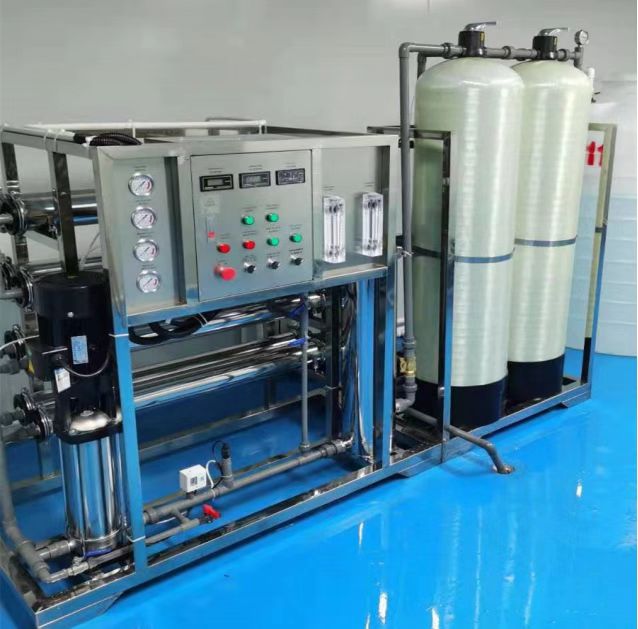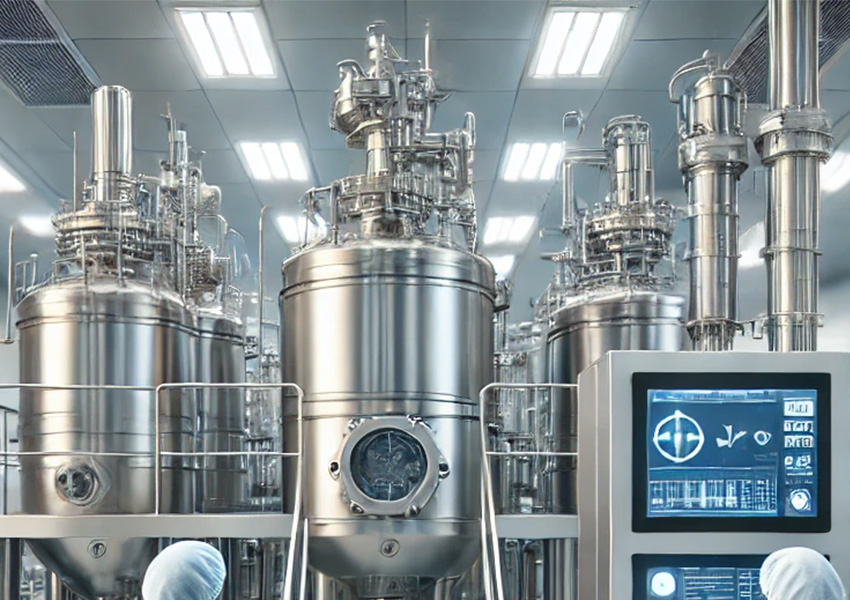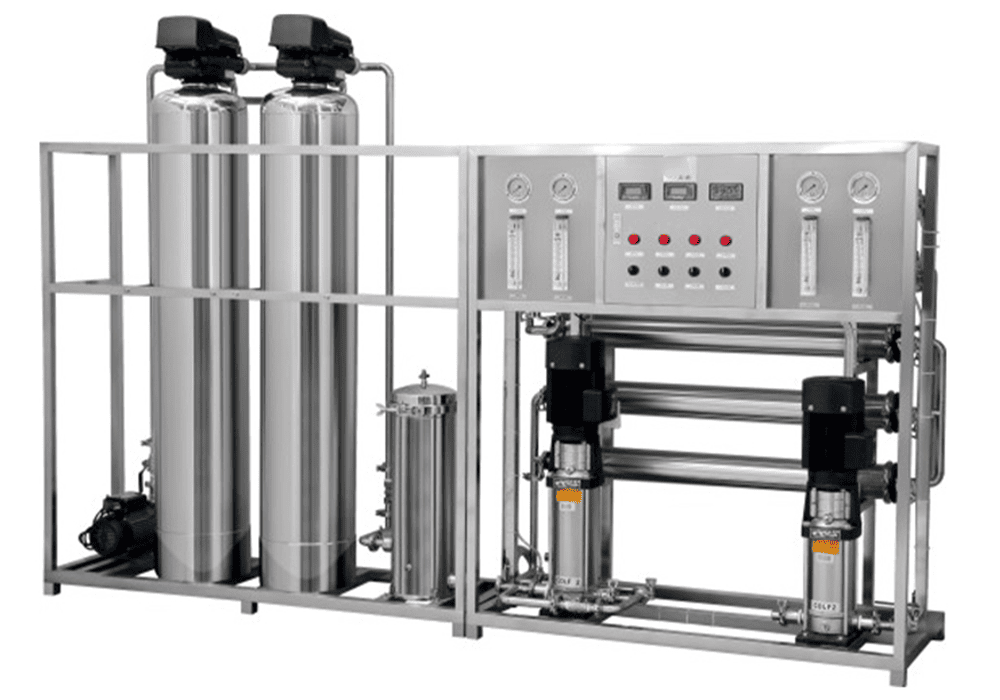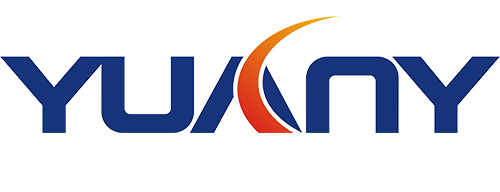Why Choose a Reverse Osmosis Water Filter for Food, Pharma, and Cosmetic Production?
- Understanding Reverse Osmosis Water Filtration Technology
- What Is a Reverse Osmosis Water Filter and How Does It Work?
- Key Differences Between RO Systems and Traditional Water Filters
- Why Water Purity Matters in Food, Pharmaceutical, and Cosmetic Industries
- Risks of Contaminated Water in Production Lines
- Regulatory Standards and Quality Assurance Requirements
- Advantages of Using a Reverse Osmosis Water Filter in Industrial Applications
- High-Efficiency Removal of Impurities and Bacteria
- Energy-Saving, No Heat Process for Stable Water Purity
- Reduced Maintenance and Operational Costs Over Time
- Industry-Specific Applications of RO Water Filters
- Purified Water in Food and Beverage Manufacturing
- Ultra-Clean Water for Pharmaceutical Processing and Equipment Cleaning
- Water Treatment Solutions for Cosmetic Production and Hygiene
- How to Choose the Right Reverse Osmosis Water Filter System
- Capacity, Conductivity, and Customization Options
- Full-Automatic vs Semi-Automatic Systems: Which Fits Your Needs?
- Why Choose YUANYANG's Reverse Osmosis Water Filter Solutions?
- Industry-Leading Performance with Certified Membranes
- Compact Design, Easy Operation, and Strong After-Sales Support
- Conclusion: Secure Safe and Reliable Water for Your Production Line with YUANYANG
Understanding Reverse Osmosis Water Filtration Technology
Reverse osmosis (RO) is a water purification process that employs a semi-permeable membrane to remove ions, molecules, and larger particles from drinking water. In industrial settings, particularly in the food, pharmaceutical, and cosmetic sectors, maintaining high water purity is imperative for product quality and compliance with health standards.
What Is a Reverse Osmosis Water Filter and How Does It Work?
A reverse osmosis water filter functions by applying pressure to overcome osmotic pressure, thereby forcing water through a semi-permeable membrane that blocks contaminants.This process effectively removes up to 99% of dissolved salts, particles, bacteria, and other impurities, ensuring the production of high-purity water, which is essential for sensitive applications.
Key Differences Between RO Systems and Traditional Water Filters
RO systems differ from traditional filtration methods in that they do not rely on physical barriers or chemical treatments. Instead, they provide a more thorough purification by removing dissolved solids and microscopic contaminants.This makes them particularly suitable for industries where water purity directly impacts product safety and efficacy.

Why Water Purity Matters in Food, Pharmaceutical, and Cosmetic Industries
In highly regulated industries such as food, pharmaceuticals, and cosmetics, water plays a central role – not just in cleaning processes, but as a direct ingredient in the final product. The purity of the product directly impacts its safety, quality, stability, and efficacy. The use of impure water can have severe consequences, including microbial contamination, chemical residues and compromised formulation integrity. It is therefore incumbent on manufacturers to take proactive steps to ensure the highest water quality throughout their processes.
Risks of Contaminated Water in Production Lines
Contaminated water poses a significant risk to both the production process and end consumers. In the field of food manufacturing, the presence of bacteria such as E. coli or salmonella in water can compromise product integrity, potentially leading to spoilage or even health concerns. In the field of cosmetics, microbial contamination has the potential to result in skin irritation or allergic reactions in users, particularly when the product is applied to sensitive areas. In the pharmaceutical industry, the risks are even more serious: even trace amounts of endotoxins, heavy metals, or organic pollutants can compromise APIs, destabilise formulations, or alter the intended therapeutic effects of medications.
Furthermore, contaminated water can also damage production equipment by encouraging the formation of biofilms, scaling, or corrosion, all of which can lead to operational inefficiencies and unplanned downtime. Once contamination enters the production pipeline, it can be difficult to trace and even more challenging to eliminate. Therefore, the use of a reliable water purification system, such as reverse osmosis, is not merely a precautionary measure — it is an essential component of maintaining operational efficiency and safety.
Regulatory Standards and Quality Assurance Requirements
In the context of global regulatory agencies such as the U.S. Food and Drug Administration (FDA), the European Medicines Agency (EMA), and Good Manufacturing Practice (GMP) standards, there is a requirement for rigorous control over water used in production. These bodies are responsible for classifying water into different grades, including Purified Water (PW), Water for Injection (WFI), and others, each with precise microbial and chemical limits. Manufacturers are required to demonstrate, through validation and regular monitoring, that their water treatment systems consistently meet these stringent parameters.
RO systems play a vital role in achieving and maintaining regulatory compliance. Their capacity to eliminate up to 99% of dissolved salts, bacteria, and pyrogens guarantees that facilities adhere to both internal quality benchmarks and external regulatory standards. Additionally, advanced RO systems often include features like real-time conductivity monitoring, automatic flushing, and integration with clean-in-place (CIP) systems to support ongoing quality assurance. In the absence of state-of-the-art filtration technology, businesses may face regulatory fines, temporary suspension of production, or even the recall of their products.

Advantages of Using a Reverse Osmosis Water Filter in Industrial Applications
Reverse osmosis water filters have become the standard of care in many industrial sectors. Their proven ability to deliver consistently high water quality makes them an essential component for manufacturing processes where even minor impurities can compromise product safety or efficacy. Integrating an RO system enables companies to enhance product quality and gain operational benefits such as reduced energy use, minimised maintenance, and compliance assurance. These are all essential in maintaining a competitive and sustainable production environment.
High-Efficiency Removal of Impurities and Bacteria
Reverse osmosis technology is one of the most efficient filtration methods available for industrial use. RO membranes are capable of filtering out a vast array of contaminants, including up to 99% of dissolved salts, organic compounds, microorganisms, and heavy metals. This is of particular importance in the pharmaceutical and cosmetic production industries, where microbial contamination can pose significant health risks, and in the food processing sector, where water quality directly affects product quality, appearance and safety.
The semi-permeable membrane in an RO system has pore sizes as small as 0.0001 microns, which physically block pathogens and dissolved ions from passing through. This ensures that the water used in each stage of production—from ingredient blending to equipment rinsing—is free from unwanted substances. The outcome of this process is not only purified water, but also more consistent and safer end products.
Energy-Saving, No Heat Process for Stable Water Purity
A key benefit of reverse osmosis is that it does not require the application of heat to purify water, in contrast to conventional distillation methods. This low-energy, ambient-temperature process has been shown to lead to a significant reduction in the operational costs associated with water treatment. For manufacturers operating on a 24/7 cycle, the potential energy savings are significant.
RO relies on hydraulic pressure rather than thermal energy, meaning that the system causes less wear on components and is compatible with heat-sensitive ingredients and equipment. The process maintains stable water purity without the thermal degradation of materials or risk of scaling from heat-intensive operations. For companies focused on sustainability and long-term energy efficiency, RO systems provide an environmentally friendly and cost-effective solution.
Reduced Maintenance and Operational Costs Over Time
RO systems are designed with long-term performance in mind. These systems have fewer moving parts than mechanical filtration systems and do not require chemical regeneration (as in ion exchange), meaning they typically require less frequent servicing. Many modern RO systems include self-cleaning functions, automatic flushing, and monitoring systems that detect pressure drops or membrane fouling in real-time, which helps in proactive maintenance.
With time, these design features will result in a reduction of labour requirements, minimal chemical usage and fewer shutdowns. Furthermore, the decreased use of consumables, such as filter cartridges or chemical disinfectants, contributes to cost savings. These advantages are especially beneficial for growing businesses and large-scale production facilities, as they ensure product integrity, enhance profitability and ensure operational continuity.

Industry-Specific Applications of RO Water Filters
Reverse osmosis water filters are versatile and can be tailored to meet the specific needs of various industries, ensuring optimal performance and compliance.
Purified Water in Food and Beverage Manufacturing
In the food industry, reverse osmosis (RO) systems are employed to guarantee that the water utilised in processing and as an ingredient is devoid of any contaminants that could compromise the product's taste, safety, and shelf life.This is imperative for maintaining product consistency and adhering to health regulations.
Ultra-Clean Water for Pharmaceutical Processing and Equipment Cleaning
The pharmaceutical manufacturing process requires ultra-pure water for the formulation of drugs and the sterilisation of equipment.Reverse osmosis (RO) systems are able to provide the necessary water quality, thus ensuring that products are safe and effective for consumer use.
Water Treatment Solutions for Cosmetic Production and Hygiene
In the field of cosmetics, the purity of water is a critical factor affecting product stability and skin compatibility.Reverse osmosis (RO) systems are engineered to remove impurities that could potentially lead to product degradation or skin irritation, ensuring the delivery of high-quality cosmetic products.
How to Choose the Right Reverse Osmosis Water Filter System
The selection of the most appropriate RO system is dependent on a number of factors, including the desired water quality, production volume, and regulatory compliance.
Capacity, Conductivity, and Customization Options
It is vital to consider the system's capacity to meet production demands and its ability to achieve the desired water conductivity levels.Customisation options, such as additional filtration stages or integration with existing systems, can enhance performance and adaptability.
Full-Automatic vs Semi-Automatic Systems: Which Fits Your Needs?
Full-automatic systems offer ease of operation and are ideal for large-scale production, while semi-automatic systems provide more control and are suitable for smaller operations.The choice depends on the specific needs and resources of the facility.

Why Choose YUANYANG's Reverse Osmosis Water Filter Solutions?
At YUANYANG, we specialise in providing advanced reverse osmosis water filter systems that are engineered to meet the stringent requirements of the food, pharmaceutical and cosmetic industries.Our systems are renowned for their high efficiency, reliability and compliance with international standards.
Industry-Leading Performance with Certified Membranes
The RO systems used by YUANYANG utilise certified membranes that ensure high rejection rates of contaminants, providing ultra-pure water that is essential for sensitive applications.The technology ensures consistent water quality, which is crucial for maintaining product integrity.
Compact Design, Easy Operation, and Strong After-Sales Support
Designed with user convenience in mind, YUANYANG's systems feature compact designs that save space and are easy to operate.Their commitment to customer satisfaction is evident in their robust after-sales support, ensuring long-term system performance.
Conclusion: Secure Safe and Reliable Water for Your Production Line with YUANYANG
Incorporating a reverse osmosis water filter into your production process is essential for ensuring product quality, safety, and compliance with industry standards.YUANYANG's advanced RO systems offer reliable, efficient, and customizable solutions tailored to the specific needs of the food, pharmaceutical, and cosmetic industries.
To explore how YUANYANG can enhance your production line with their state-of-the-art reverse osmosis water filters, visit https://www.yuanymachinery.com or contact their expert team for a consultation.


How to Future-Proof Your Production Line: The Latest Innovations in Precision Filling Machinery (2026 Guide)

The Definitive Guide to Industrial Storage Tanks 2026: Why Food-Grade Stainless Steel is the Gold Standard

The Ultimate 2026 Guide to Liquid Filling Machines: Types, Technologies, and Strategic Selection

Ultimate Guide to Commercial Reverse Osmosis Systems 2026

Ultimate Storage Tank Guide for 2026: Selection & Innovations
Automatic Round Bottle Labeling Machine
How many bottles can this automatic labeling machine for bottles per minute?
Yes, this round bottle sticker labeling machine is suitable for sticking labels on glass bottles.
Semi Automatic Double Sides Labeling Machine
Can you add a date printer for the double-side labeling machine?
Yes, optional ribbon coding machine and inkjet printer, to print production date and batch number information on the label, to achieve labeling - coding integration.
Automatic Servo Motor Capping Machine
Can rotation speed of the bottle separator be controlled for this servo capper machine?
The speed to separate bottles can be controlled with frequency converter on the electric cabinet.
Do you also supply rotary tables for bottle sorting and collecting on both sides of the high speed capping machine?
Yes, we supply related machines, not only the bottle sorting machine and bottle collection machine, but also many other filling line machines such as filling machine, labeling machine, date printer.
Liquid Mixing Tank
What’s the maximum temperature it can get?
Steam heating: 100~180℃; electric heating: use water 100℃, use thermal oil 260℃.
Leave a message
Have any questions or concerns about our products? Please leave us a message here, and our team will get back to you promptly.






 Scan QR Code
Scan QR Code
Facebook
YouTube
LinkedIn
Whatsapp: +8613434139712
Guangzhou Yuanyang Machinery